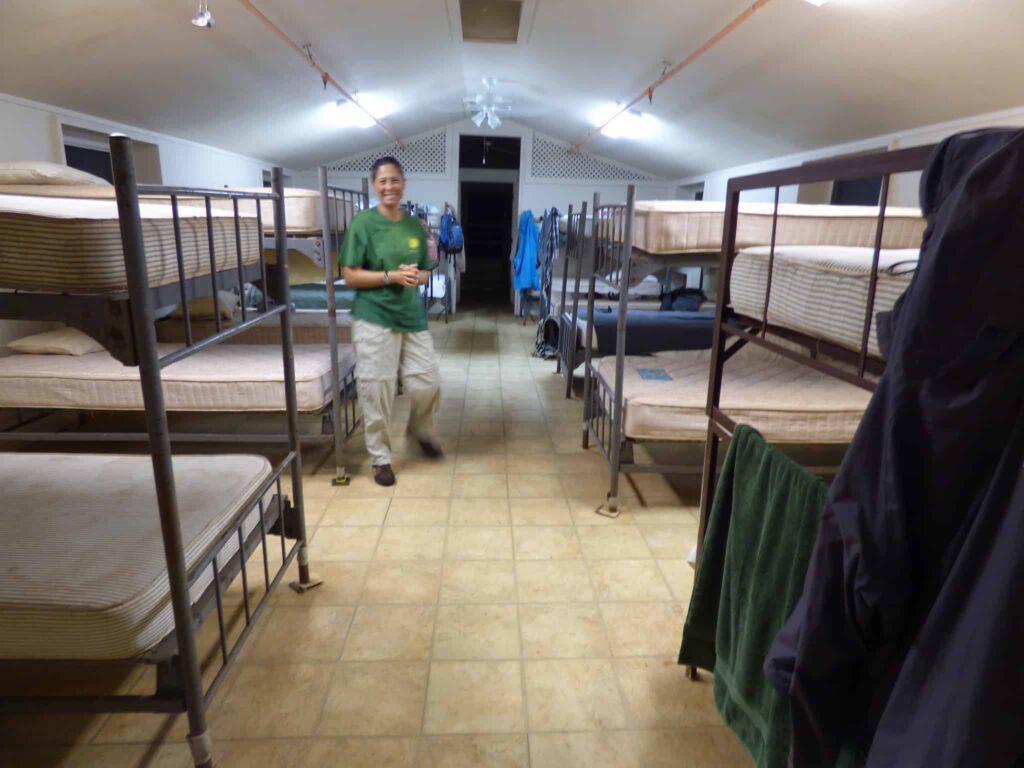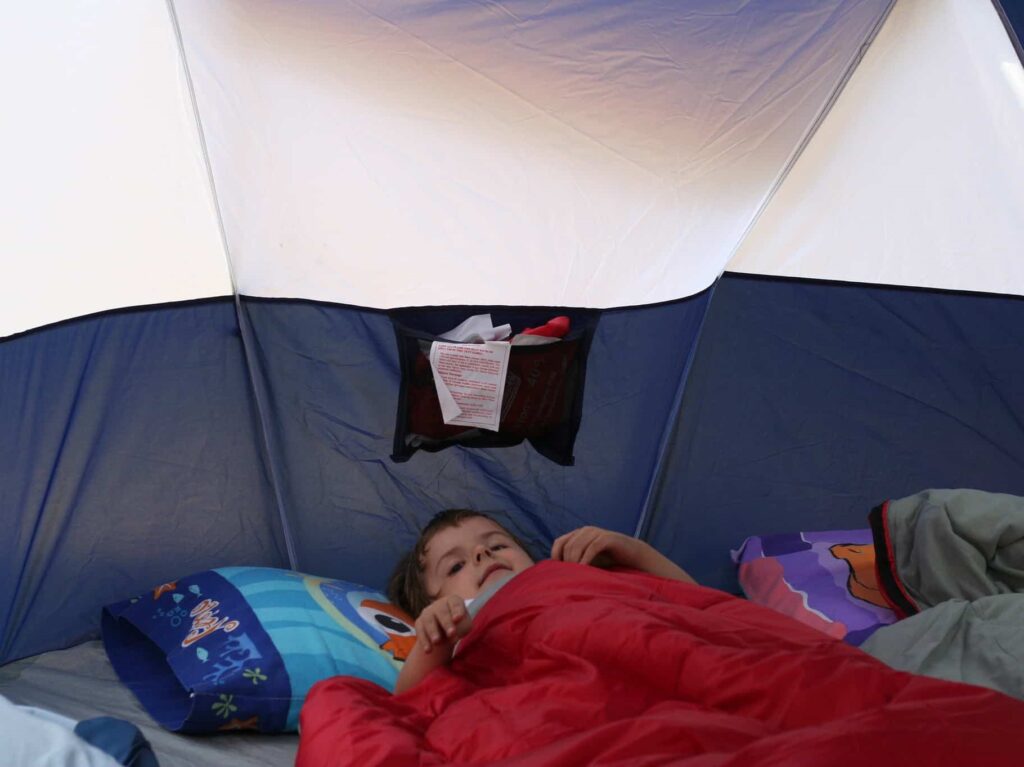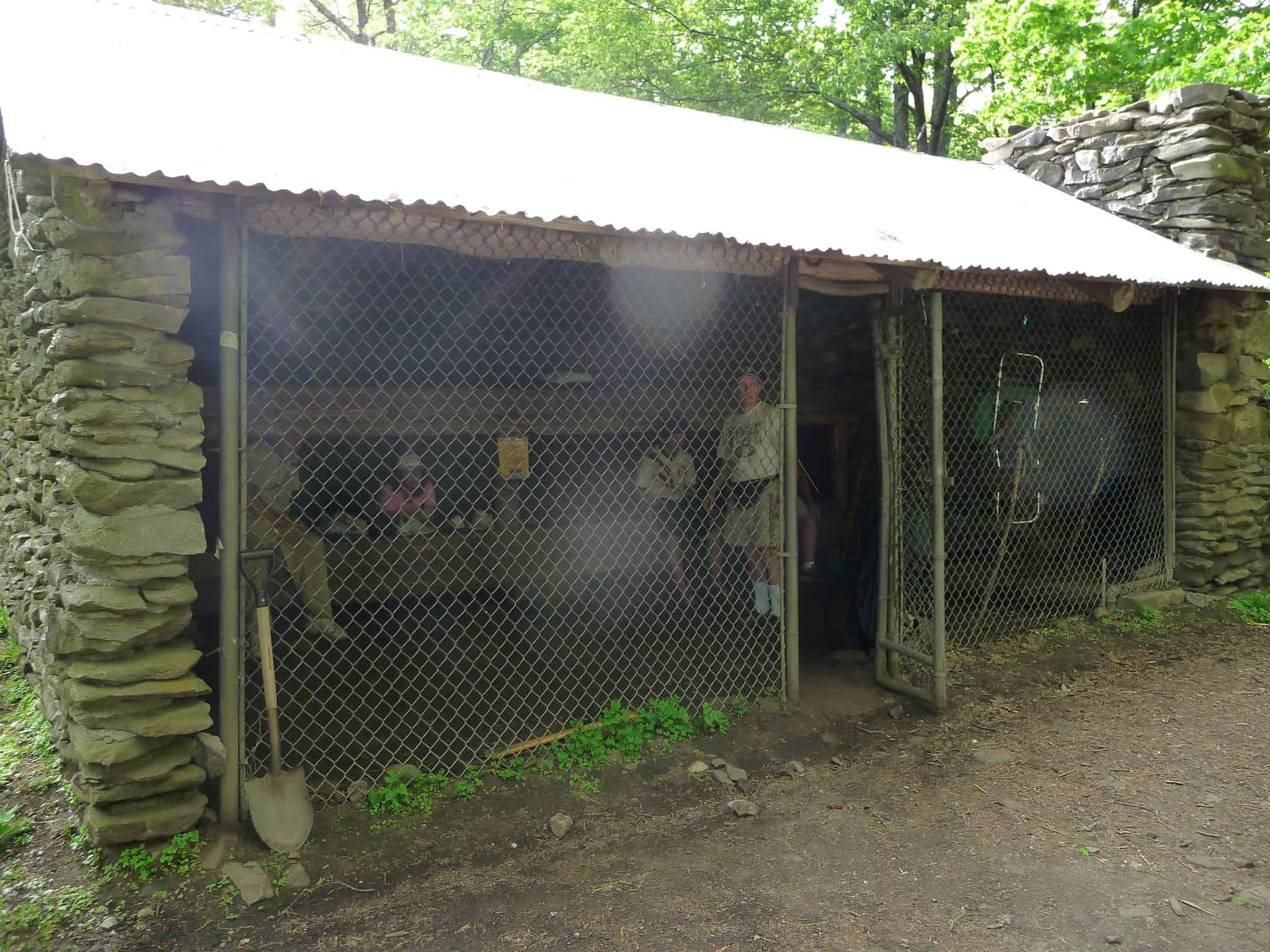Last updated on January 16th, 2023 at 11:18 am
Camping is dirty and difficult enough without having to worry about a bed bug infestation. Many novice outdoor enthusiasts often ask, “Can you get bed bugs from camping?” If you’ve got a group adventure coming up and are concerned about bed bugs, you’ve come to the right place. We’ll walk you through everything you need to know so you have a pleasant, worry-free experience.
While acquiring bed bugs is possible, the odds are extremely low. You’re really only at risk if your gear or party members are already infected.
Can You Get Bed Bugs from Outdoors
Unlike lice, chiggers, and ticks, bed bugs do not live outdoors. So you won’t ever have to fear getting bedbugs just by going camping.
In most instances, bedbugs are passed from person to person, or from bedding to person. Anytime you use communal areas in which bedding is shared, there’s always a risk of picking up those unwanted guests.
For example, if you’re kids attend a summer camp where everyone sleeps in the same cabin. Or, you invite a guest to go camping and they and/or their gear are already infested.
The good news is that in most cases, the chance of getting bed bugs from camping is next to none.
However, campers heading to a cramped shelter, summer camp, or borrowing gear from friends should take the most precautions to avoid bringing a bed bug infestation home.
We highly suggest not borrowing gear, and if you’re looking for a new sleeping bag, check out our post on Best Sleeping Bag for Hot Weather

Can Bed Bugs Get into a Tent
As mentioned, the only way to get bed bugs in your tent is either through sharing your tent with someone who already has them or through already-infested gear.
It’s not uncommon for avid campers to try to save a buck or two when purchasing gear. For instance, picking up a sleeping bag through garage sales, second-hand stores, or Craigslist is a great way to do just that.
However, there’s always a risk. You have no way of knowing whether your purchase is already infested.
Bed bugs are truly only active during the night, and can be dormant for an extended period. So, you likely won’t spot them upon first glance.
Because they’re predominantly active at night, you don’t have to worry about ‘catching’ them in public restrooms or shared common areas. They typically prefer to remain close to where people sleep.
But you never really know. While you’re enjoying a weekend with the family, the tent next door could be hanging out while their home is being ‘bug bombed.’
So, albeit a small one, there’s always a chance.
Can You Get Bed Bugs in Inflatable Mattress
Bed bugs like to hang out any place there’s a warm body to feast on. Your inflatable mattress is prime real estate. While it’s not as easy for them to dig in and go unnoticed, there are plenty of seams and folds they can crawl into.
However, some inflatable mattresses are more inviting than others. Bed bugs prefer soft, velvet surfaces rather than slick vinyl ones. Larger, thicker mattresses usually offer more hiding places with their wider seams, nooks, and crannies.

Can Bed Bugs Get into a Hammock
Hammocks don’t provide many hiding places for bed bugs.
Their material is too smooth and doesn’t provide many crevices for disappearing.
However, if you toss a sleeping bag on your hammock, then they can always burrow into your bag.
Another benefit of hammocks is that they’re generally easy to clean, so you don’t have to worry about transporting those pesky passengers back to your home.
We have found the very Best Hammocks for Camping and Hiking in this next post.
Where Do Bed Bugs Come From
There’s a common misconception that bed bugs come from only dirty places, but that couldn’t be further from the truth.
Bed bugs can infest the tidiest of places, and they love three things. Traveling, people, and indoors.
Unlike most insects, bed bugs hate living outside. They prefer to sleep as close to their food source as possible. That’s you.
Because of this, bed bugs usually pass through clothing, furniture, luggage, or shared living areas. That can include Airbnb’s, cabins, glamping tents, or other shared facilities where people are constantly rotating in and out.
All it takes is one person to be infected, and wherever that person goes, anything they touch is fair game.
In fact, if you or someone in your family comes home with raised, red, itchy rashes, a bed bug search should commence immediately without bringing any bedding or clothing into the home until an infestation is ruled out.
Furthermore, for those fighting an infestation, moving to the woods or a motel temporarily is not recommended and can prolong the infestation.
However, not everyone knows that, which is why bed bugs are so difficult to get rid of.
Can You Catch Bed Bugs from Other Campers
The true risk of getting bed bugs while camping comes when someone or something in your campsite already has them.
Unless you’re sharing tents, chairs, blankets, etc., there’s not much danger in just randomly picking up bed bugs.
The main way you get them is if they’re already in your tent or other lodging areas (source).
What is the Best Bug Repellant for Camping
There are actually several ways to repel bed bugs. Fortunately for humans, bed bugs process oxygen through their exoskeleton.
Because of this, the best natural options include anything containing linalool or allicin. If it doesn’t kill them, it certainly drives them away.
Natural sources of linalool include:
- Lavender
- Mint
- Cinnamon
- Basil
- Citrus
- Garlic
Another option is vinegar, which corrodes the exoskeleton essentially drying them out. Alternatively, diatomaceous earth also eats through a bed bug’s exoskeletons.
If you’d rather opt for commercial chemical products, there are plenty of options to choose from. Harris Toughest Bed Bug Killer and Premo Guard Bed Bug & Mite Spray are two popular products that come to mind.
Lastly, you could even toss a couple of bed bug traps around your sleeping area if you’re overly concerned.

How Do You Not Bring Bed Bugs Home from Camp
The best preventative maintenance that keeps bed bugs out of your home is to avoid them altogether. This means staying away from known infected persons and not using second-hand gear.
If you’ve recently returned from camp and have any concerns about bringing bed bugs into your home, follow these steps:
1) Quarantine Everything
Place all of your camping gear into large air-tight bins. You can pull items out one by one to properly clean them before bringing them into your house.
2) Use Bed Bug Spray, Traps, or Both
Before you seal the lid of your bins, place a bed bug trap inside, or spray the gear inside your bin. Then tightly seal everything up.
The bin prevents the bed bugs from escaping, and the spray or traps will kill them before they reach the inside of your house.
3) Launder Bit by Bit
Since you’ve sprayed your bins and sealed them, you can launder items at your leisure. Pull out whatever items you want to wash on the highest heat allowed for the fabric, then reseal your containers.
To begin the process, take out an item, inspect it several times over and use shipping tape to pick up any eggs, nymphs, and adult bedbugs, being sure to check each seam thoroughly. Tackle one load at a time until all of your items have been thoroughly cleaned. Encapsulate found bed bugs in anotherlayer of tape and throw away. Alternatively, pack them into a ziplock if you need to show a landlord or friend.
In the meantime, the bed bugs can’t escape from your bins and the pesticides are doing their job while you launder one load at a time.
Finally, dry items on the highest possible setting allowed by your items.
How Do You Get Rid of Bed Bugs in a Tent
If you know for certain your gear has bed bugs, follow the steps below to ensure you’re disposing of the threat.
Vacuum out the Inside
Forcefully, shake the tent, turn inside out and shake again. Then, pitch your tent so you can gain access to both the inside and out. This makes the overall process much easier.
Thoroughly vacuum all seams and fabric folds along the edges. Use a scrub brush on your seams to loosen any eggs that may have nestled within.
Be sure to vacuum around all your flaps, pockets, and zippers both inside and out.
Repeat this process with your sleeping bag as well. As previously mentioned, we’ve personally had great luck applying and removing packing tape to capture bugs and eggs to keep them from escaping.
Then, encapsulate your vacuum bag or contents of your bagless vacuum in plastic and dispose of quickly.
As an added measure of precaution, it certainly wouldn’t hurt to spray your seams and other high-risk areas with commercial pesticides.
Clean thoroughly
Since bed bugs can’t survive high temperatures (49° C / 120° F), washing your items with laundry detergent and hot water can exterminate them (source).
So whatever you can throw in the washer on hot and dry safely on high is the easiest way to kill and extract bed bugs.
However, this is quite difficult to achieve for most tents.
So, we’d recommend washing on warm-hot, air drying, then treating with one of the pesticides mentioned above.
Dry by cold or heat
Once your items have been washed in hot water, you can add an additional round of heat treatment by placing them in the drier for at least twenty minutes. This also destroys any eggs that linger in those hard-to-reach places.
However, experienced campers know to avoid drying anything in a dryer that has a protective waterproof coating. In fact, excessive heat more or less destroys your waterproofing and renders it useless.
Although, bed bugs are certainly an exception to the rule and a rare circumstance that would be worth the risk.
Plus, you can retreat your tent with waterproofing with some degree of success after it’s been thoroughly washed and dried. Additionally, a lower heat setting could help preserve your waterproofing.
If you’re just adamantly opposed to tossing your tent or backpack in the drier, there are other options.
For instance, you could opt to freeze your gear instead. However, this requires substantially more time.
If you’re using the freezing (0° C/32° F) method, make sure you leave your gear for a minimum of five days.
Repeat
Finally, once you’ve cleaned all of your gear, give it a very thorough inspection. Look for any signs of ongoing bug infestation.
If you see even the slightest evidence, or if you experience any signs of infestation, repeat the cleaning process again.
Signs of bedbugs include:
- Small, raised itchy rashes
- Thin, red, brown, or black smears of dried blood on bedding
- Ongoing signs of exoskeletons or eggs
- Unexplained bites
What Pests Can You Get from Camping
While bed bugs aren’t a common pest you pick up from camping, there are many other pesky insects that you can.
The most annoying and notorious for spreading disease are:
- fleas
- ticks
- mosquitoes
- chiggers
Bees, spiders, earwigs, and ants are also common nuisances but are easy enough to see and work around. Lice are annoying and can also be acquired, but there’s no risk of any disease.
Many people have difficulty differentiating between tick bites and bed bug bites. However, while both feast on human blood, a few key features will help you contrast the two.
First, if you actually lay eyes on the insect in question, one obvious difference is bed bugs have six legs while ticks have eight (source). Bed bugs are also slightly larger than ticks.
In addition, a tick will attach itself to your body and bury its head underneath the skin where it remains until removed.
On the other hand, bed bugs like to hide during the day and feast while you’re sleeping.
Now, while it’s highly unlikely you’ll get bed bugs from camping, you may still feel filthy. If you just can’t shake the thought without a shower, check out our post where we find the Best Portable Shower for Camping
Sleep Tight
Bed bugs are terrifying, they make you feel dirty and shunned by society.
In truth, however, the chance of getting bed bugs while camping is rather slim. But if you do succumb to such minute odds, at least you know how to rid yourself of these blood-sucking pests. Plus, you know how to ensure they never see the inside of your home. Hopefully, this helps you rest easy and enjoy your camping trip.
And if you ever do get infested with bed bugs, remember, you’re not alone and you’re not dirty. Infestations are a normal part of life, and a person with such diverse interests such as yourself shouldn’t feel ashamed by a routine problem. We’ve been there.
About the Author
Sarah Sampsell
Can You Get Bed Bugs from Camping, title Image Credit: Andrew Ross | (source) | Attribution 2.0 Generic (CC BY 2.0) — reduced file size and image
Image 2: Can You Get Bed Bugs from Camping, Image Credit: Forest and Kim Starr | (source) | Attribution 2.0 Generic (CC BY 2.0) — reduced file size and image
Image 3: Can You Get Bed Bugs from Camping, Image Credit: James | (source) | Attribution 2.0 Generic (CC BY 2.0) — reduced file size and image
Can You Get Bed Bugs from Camping, Image Credit 4: Stephen Kruso | (source) | Attribution-ShareAlike 2.0 Generic (CC BY-SA 2.0) — reduced file size and image

